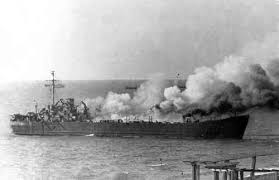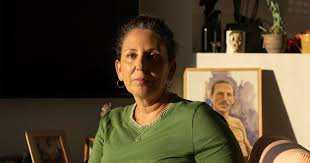New London Synagogue was founded on the basis of a refusal to be timid and a willingness to communicate a complex idea rather than retreat into a self-willed blindness.
It was a
technical issue, a theological question about how the Torah came to be.
On the one side
the claim was made that the Torah was dictated by God to Moses in a 40-day
spurt and done, rendered perfectly divine and immutable.
On the
other side the claim was that the Torah was made up by humans, adding or
subtracting based on their own values from one day to the next.
Into that
polarity stepped Rabbi Louis Jacobs seizing, well, neither pole. Neither is it
the case that the Torah has no history, and no humanity involved in its composition.
But neither is it simply the product of human vicissitudes, devoid of any
holiness.
And there
were those, back then, who criticised Rabbi Jacobs for making public what many
felt should have been kept private, for advocating for the complexity, rather the
simple and obviously wrong. Rabbi Louis Jacobs,
the greatest Rabbi of the 350-year history of Anglo-Jewry, was excommunicated.
He used to
say, I can still hear him say it, “that the advantage of being in hot water is
that it keeps you clean.” I also have in mind a wonderful paragraph from Chaim
Bermant, “One is always accused of 'washing dirty linen in
public' and of 'giving ammunition to our enemies. … But if linen isn't washed
in public, it isn't washed in private either and is generally allowed to
accumulate until it stinks to heaven."
And so to Israel.
I mean the
very name itself – the Biblical explanation for the origin of the Biblical name
given to our ancestor Jacob - suggests wrestling – complexity and struggle.
But I mean
the modern state.
In this
week in which Israel has celebrated the Anniversary of Independence, I listened
to a podcast which decoded the scrawled handwritten diaries of David Ben-Gurion
– the man who declared Israel’s independence on the 5th Iyyar some
77 years ago. David Ben-Gurion wrote of his conflict as he announced
independence.
“I mourn amidst the rejoicing,” he wrote, acknowledging
that none of his Chiefs of Staff agreed with his decision. Complex. Nowadays,
of course, the Day of Memory – Yom HaZikaron is the day that leads into the Day
of Independence, it’s a Jewish trop, of course, that our tears and our
celebrations go hand-in-hand.
But even then, back in 1948, there were divisions and complexities, not even just from the Arab League. Even within the nascent State, Socialist factions and Herut factions fought one another, I mean that quite literally. Following the lead of the two principal political factions of the day, Mapai and Herut, the pre-State militia of Mapai – the Haganah - fought the pre-State militia of Herut - Etzel. It resulted in disaster. 19 people died in a Jew vs Jew fight when a ship called the the Altalena was shelled in the very midst of the War of Independence.
This came against the backdrop of military invasion from beyond the newly created State, and also attacks from Arabs inside of Israel.
I don’t
know if this is sounding familiar.
There was an
invasion across a border – check.
There was
politicisation of Israel’s defence establishment – check
And there
was Arab on Jew, and Jew on Arab violence within Israel – check.
And there
was even Jew on Jew violence within Israel – check.
Let me just
do that last of these in a touch more detail.
This week, just as every Yom HaZikaron for the past 20 years, the Bereaved Families Forum and Combatants for Peace have held a joint Memorial service where all the losses of these past decades, of both Jews and Palestinians can be acknowledged.
It’s a remarkable event. Hundreds of people gather in person, thousands more on-line in both Palestinian and Jewish homes, and brave, brave Jews and Palestinians speak of their awful loss and their refusal to see in the face of the other inhumanity. Brave, brave people speak of their insistence that there has to be a better way. My heart was broken, this year, particularly by Liat Atsili a survivor from Kibbutz Nir Oz, a woman taken hostage and subsequently freed, whose partner, the father of her three children, was murdered on the 7th October.
Atsili,
citing Levinas, said this “we don’t get to chose the others we face, we must
accept the others we receive and the test lies in the extent to which I accept
my responsibility.” That’s her response to the awful invasion of her home, her
life and her loved ones – to acknowledge, as she put it, “This responsibility
is the very embodiment of freedom.” Astounding.
And while
that ceremony was going on, a group of Jewish thugs, encouraged by a Likud-affiliated mayor in Ranana, attempted to invade and break into a
Synagogue – Jews breaking into a Synagogue – which was trying to screen the
ceremony.
The photos
are terrifying – Rabbi Gilad Kariv MK called it a "pogrom." Jew launched against Jew.
For the sin of what exactly, refusing to see every Palestinian as evil. For insisting that, as another speaker put it, “pain is pain, pain doesn’t discriminate.”
There are
those who look at what is going on today, what has been going on for the past
77 Years of the life of the Israeli State through a lens of polarity and simplicity
– Israel is either simply right, or simply wrong.
And those
who refuse to clutch wholeheartedly to one pole or another can be pilloried,
excommunicated in the language of the Jacobs Affair, or, perhaps better in
today’s parlance, cancelled. And here we are.
It’s not
great. It’s not going to get better. And it’s certainly not going to get better
by pretending there are simple truths to this complexity. It’s not going to get
better by being timid.
The only
way to get better is to keep insisting that different truths can be true at the
same time.
It can be
true and it is true that an awful attack was waged against Israel, not just on
7th October, but time and time and time again.
It can also
be true and it is also true that Israel has caused great pain to innocent
Palestinians.
It can also
be true that Israel is a victim of malicious falsehood and held to standard
above what could ever be expected to be just. It can be true that the
Palestinian leadership has failed, again and again, to seize the opportunities to
build towards peace.
But it can
also be true that terrible things have been done in the name of Israel,
particularly by far-right nationalists who have been allowed to get away with criminality
by supposedly more mainstream political leaders. And it can be true that Israel
has also sought to block pathways towards rapprochement and Palestinian
self-determination.
It can be
true that Israel has a right to exist in safety. It can also be true that Israel
can never find safety without all the people inside and across her borders believing
that they should also be invested in that peace.
I’m not
suggesting that’s easy. In fact that’s precisely the point. If it was easy, it
would already be wrong.
So where to
go? What is our role, as British citizens, living so far away from the awful
harsh realities of terrorist attacks and existential threat.
In March,
Rabbi Natasha and I were in Israel. We travelled to the Gaza Envelope and met
with hostage families, indeed we welcomed to this very Bimah last Shabbat Itay
Shabi who survived the attack on Kibbutz Beeri.
And we also
met with Rabbi Tamar Elad Applebaum. Rabbi Tamar is a native Yerushalmite, whose
fallen brother is remembered every year on Yom Hazikaron. And she shared with
our group a famous verse from Psalms, recited, of course, at Jewish weddings.
אם אשכחך ירושלים תשכח ימיני
תִּדְבַּק-לְשׁוֹנִי, לְחִכִּי-- אִם-לֹא
אֶזְכְּרֵכִי:
אִם-לֹא אַעֲלֶה, אֶת-יְרוּשָׁלִַם-- עַל,
רֹאשׁ שִׂמְחָתִי.
Citing a 17th C Turkish Rabbi I had never heard
of she shared that the verse couldn’t, Ha’as V’Shalom, be about picking on
right-handed people above left-handed ones, rather it had to be about the two
principle seats of the psychological self in Jewish thought – rigour – Gevurah –
understood to be archetypally connected to our left hand side, and love –
Chesed - on the right.
To forget about Jerusalem, therefore becomes to lose the side
of ourselves which is about love. To forget about Jerusalem is to walk away from
the mess, to cease to care and to become an uncaring person.
תִּדְבַּק-לְשׁוֹנִי, לְחִכִּי
Our tongue
becomes cleaved to our palate, we lose the ability to speak.
Our role
can’t be to forget, or to lose the ability to speak.
We have to
lean in.
Show we care,
we count.
We have to –
she was speaking to a bunch of Rabbis – but I’ll share the responsibility with
you all today – we have to lean into the possibility of care, of kindness. We
see these things all the time, in Israel, amongst Jews, amongst Palestinians,
even in Gaza. People who love and care, even despite all the pain and fear. People
who see the pathway of violence, and refuse to be seduced by the surface attractiveness
of a false belief – the belief that there is a wall high enough, or a military response
terrifyingly violent enough to bring peace and security to the region.
I’m not
suggesting that’s easy. In fact that’s precisely the point. If it was easy, it
would already be wrong.
I’m
not -
in case you have entirely misunderstood everything I’m trying to say
today, I’m not an apologist for Hamas or anything like that. I’m trying to say
something entirely different. I’m trying make a case for the necessity of
admitting multiple truths in order to allow for the co-existence of multiple
peoples.
I’m tired
of trying to hold a middle ground where alternate claims can both be true – and
indeed can both be false. I’m sacred of being pilloried or cancelled or
excommunicated for speaking out on this issue. And I’m thousands of miles away
from where the pain of this situation is felt most bitterly.
But we can’t
forget Jerusalem.
In fact, I
think it’s our responsibility, humbly and aware of our distance and privileged
Western existence, to speak up and out into this nasty atmosphere where difference
is weaponized and epithets and worse are hurled, to try and make the case that
there are innocent, decent, brave, non-violent actors on all sides.
They need
us to magnify their voices. They need us to seek to lower the polarised narratives.
They need us to say that their bravery is heard. It’s going to be on us to
speak a with a cooler voice from outside the crucible that is the Middle East. Not
because we are naïve but because distance affords and obliges us to see multiple
things can be true at the same time. We, in this country, are not needed to be one-eyed
when facing the desperate complexity of what it means to believe in and pray
for and work for the safety of all of those living in Israel, Jew and Arab
alike.
If you feel
the need to steel yourselves to understand more to do this work – I recommend watching
the Joint Memorial Service –
Or look for
the web sites of organisations such as Standing Together, or A Land for All.
https://www.standing-together.org/en
https://www.alandforall.org/english/?d=ltr
Israel’s
survival for 77 years is a remarkable achievement in the face of so much aggression
and violence. Just think what she could achieve if a path out of violence could
be found.
Shabbat
Shalom









No comments:
Post a Comment